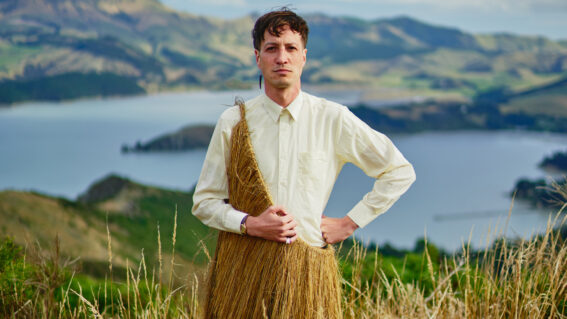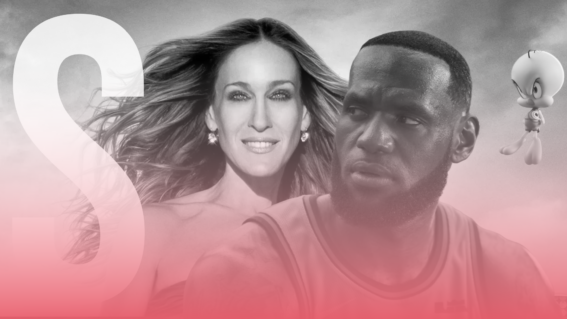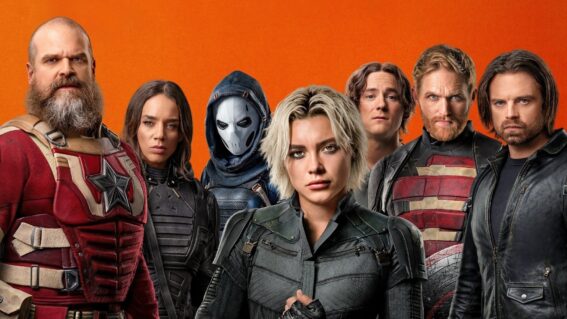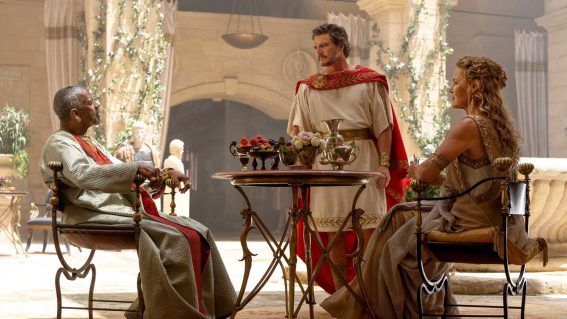‘Under the Shadow’ Director Talks Tehran Terror

Director Babak Anvari was in town recently to discuss his debut feature, the genre-bending, Polanski-recalling, psychological horror Under the Shadow. Set amid the Iran-Iraq war and depicting supernatural goings-on further tormenting its mother-daughter leads, it’s an assured debut from a promising filmmaker, and played as part of the NZ International Film Festival.
FLICKS: I started wondering if there are certain territories or parts of the world where the film is actually going to be pitched to audiences quite differently. When it does go around the Middle East in some fashion, I wonder if you have an inkling of it how it may be sold to audiences.
BABAK ANVARI: I think so. That’s a very good question. But I think, for instance, when it starts playing in the Middle East, the whole mythology in it, I think it will be more familiar for those sorts of audiences rather than in the western world. But even, for instance, the way it’s been promoted in the US and UK or here, it’s always like you can sense that it’s a different way of approaching it. Even the audience, they’re different. The way they react when they’re watching it. I usually try to sit and watch the film with the audience trying to see how they engage with the film. But, yeah, in the US they’re a lot more shouty and expressive, but then certain parts of Europe, they’re more reserved, they still jump. It’s pretty cool to see to a different culture, different people, react.
I suppose at its core, they all relate to very universal elements. But I was thinking about the old hack showman business that is cinema sometimes, in the way it’s about positioning that film in front of someone.
Exactly. One of the trickiest things is that to convince people to come watch it even with subtitles, because some people don’t like to watch subtitled films, but I guess you just have to tell them, “It is a good film. Trust me. Come, please. Please, I’m begging you [chuckles].” So far it’s been well-received. We’ll just see how it goes. So far so good.
Last night you were asked “the domestic and supernatural elements – which came first?” Your reply, I think at the time, was basically “they came out in one go”. Did you have the basic idea of a residential supernatural drama and then expand it?
That’s exactly how I came up with it. I was like, “What was I afraid of when I was a child?” And I was like, “Oh, djinn.” Which is basically the boogie man. And then came merging the fear of war with the fear of supernatural, merging them together. Literally they came hand in hand and it happened naturally.

I’m guessing that when you’re midway through breaking a screenplay, the last thing you want to do is sit back and go, “How am I going to achieve this?” I presume you probably write your way through and then look at it like that afterwards.
Yeah. The way I work on scripts, I plan it. I’m not one of those people that just sits and writes and sees how it goes or where the characters are going to take me.
“Oh, the characters. Yes, I didn’t write it. They wrote themselves.”
Yeah, exactly. To be honest with you, that’s not the way I work. I tend to plan things, do a lot of character background, and then plot it. I wrote a treatment before writing the script and the treatment ended up being 56 pages. It was just a story and my agent said, “Okay, don’t do that next time.”
That just leaves you 14 to go!
Exactly. It was a very detailed story before even getting into writing the script.
I guess you’ve got to always leave everyone wanting more, even in the development process.
Yeah, exactly. It’s so rewarding when you plan a lot and it becomes more rich and then you can streamline it and be more focused when you get to the script stage. But then, also leaving Easter eggs, things that you know why they’re there, but you just think hopefully the audience when they watch it once or twice. I really hope this film ends up being one of those films that the more people watch it, the more they find things in it. I don’t know how successful I’ve been, but let’s see.
From an audience point of view, I think it’s pretty clear that clues and hints are littered through it, but you’re always being dragged along by the various forms of tension that are in place.
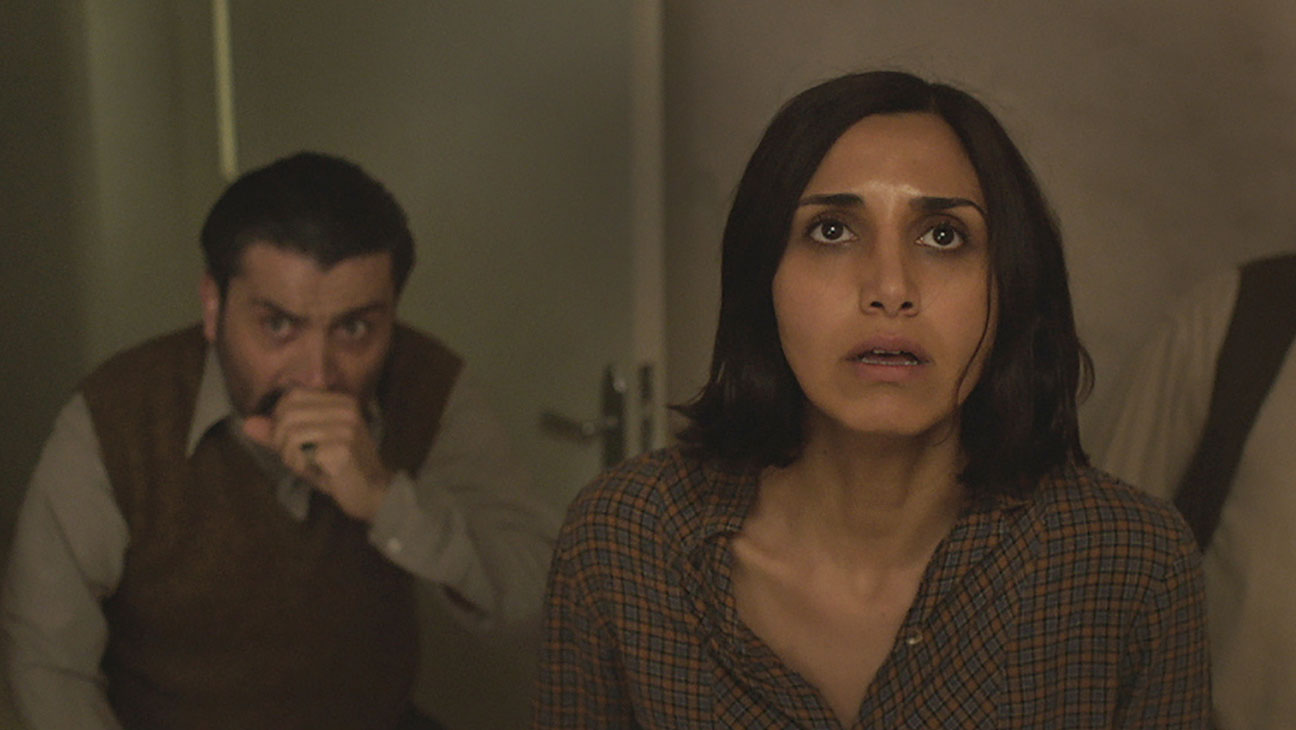
There’s a scene which reminded me of when I try and change the duvet cover and it feels like I get stuck it in for infinity. That sequence that seems like a vortex of fabric and sheets. It seemed like a very practical solution to what may have been a very broadly sketched idea, did you think from the beginning that’s how it was going to roll out?
I was always excited about the scene from the script stage and then when it came to shooting it, yeah, we did go down the route of just doing it in camera. We literally had a room, put a sheet on it, and people were flapping it. Most of the effects in the film, they’re 50/50, so we try to do that as much as possible in camera and then enhance it later on. I guess what you’re asking is was it always in my head? Yeah, that was from the very first draft.
It feels like a very pragmatic scene to shoot. As much as a film shoot isn’t all shits and giggles, that seems like a moment where “what we’re doing here’s hard work, but also sort of ridiculous and creative”.
It sounds funny, but when we were shooting it, it actually ends up being quite intense because the actress and the child were actually physically under the sheet with the camera man – all three of them. They genuinely were quite freaked out because they were like, “Okay, this is getting claustrophobic now.” It was quite fun.
It’s your Baz Luhrmann ‘Romeo and Juliet’ moment.
Yes, it is [chuckles].
With your overall prep for film – this is your first feature – I presume meticulous preparation is probably something that happens. Like, “I can’t fuck this up.” When it came to the actual days of the shoot, did you feel like that had paid off? Was it a less terrifying process than you’d thought it would be?
Yes, also because it was very low budget and we didn’t have a huge amount of time to shoot it, we only had 21 days, I knew from day one that I have to plan it very well and it genuinely did pay off because we basically didn’t have time to waste and had to be super-efficient. Even future projects, which hopefully I will have more of a budget and more time, I’m still going to try to be as efficient. It was a great learning curve.

What are your thoughts on reading reviews of your own film? Everyone says they don’t, but we know it’s not true.
No, that’s not true. I love reading the reviews. When it played at Sundance, the first screening, when the first review came out – or the first few reviews – I needed to ask my girlfriend to read them first and then tell me, or the producers -if it sucks, if they’re saying that the film sucks, please tell me slowly. So far it’s been very positive which I’m very lucky, and feel really relieved.
My suspicion, because people are so awful, is that as the film reaches a wider audience, there are going to be really unpleasant racist, sexist, things said in reviews on Amazon and so on, because you’ve got this holy trinity of genre film, woman and Middle Eastern.
You’re probably going to not want to read your reviews from the general public in six months’ time.
I know.
It must be funny being in that genre space, where the cliché is the white teenage male and you’ve made a film which falls into that genre, and people will click on it on Netflix, but it will not be what they are expecting.
Yeah. It will be interesting, also because it starts off almost feeling like it’s a social drama, but then it shifts. I’m interested to see how the audience respond, because it could stop playing and go, “Is this a drama?”
Totally. You’ll get recommended to it from ‘A Separation’. You’ll also get recommended from ‘The Babadook’.
Exactly. It will be really interesting to see. At the end of the day, it’s just taste as well. I’m not expecting everyone is going to love it, obviously, but we’ll see.

